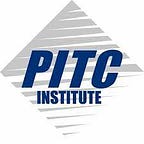Understanding LPN: Advantages of Choosing a Career as a Licensed Practical Nurse
In the dynamic and ever-evolving field of healthcare, a Licensed Practical Nurse (LPN) plays a crucial role in providing essential patient care.
LPNs are highly skilled healthcare professionals who work under the supervision of registered nurses (RNs) and physicians, delivering a wide range of clinical services.
This blog aims to shed light on what LPNs do and outline the numerous advantages of choosing a career in this rewarding profession, including their ability to specialize in specific areas of healthcare.
What is an LPN?
A Licensed Practical Nurse, often referred to as a Licensed Vocational Nurse (LVN) in some states, is a healthcare professional who has completed a state-approved practical nursing program and has passed the National Council Licensure Examination for Practical Nurses (NCLEX-PN).
LPNs are an integral part of the healthcare team, providing direct patient care in various healthcare settings.
Roles and Responsibilities
Direct Patient Care:
LPNs are trained to provide a wide range of basic nursing care, including administering medications, wound care, and monitoring vital signs.
Assisting with Procedures:
They assist in medical procedures, such as inserting catheters, starting IVs, and performing basic lab tests.
Patient Education:
LPNs often play a vital role in educating patients and their families about their conditions, treatments, and preventive care measures.
Record Keeping:
They maintain accurate patient records, ensuring that all information is up-to-date and accessible to the healthcare team.
Emotional Support:
LPNs provide emotional support to patients and their families, especially in times of distress or uncertainty.
Collaborative Care:
They work closely with RNs, physicians, and other healthcare professionals to ensure holistic patient care.
Specialization in Specific Areas of Healthcare
LPNs have the opportunity to specialize in specific areas of healthcare, allowing them to focus on particular populations or medical conditions.
Some common areas of specialization for LPNs include:
Geriatrics:
LPNs who specialize in geriatric care work with elderly patients, providing specialized care tailored to the unique needs of older adults.
Pediatrics:
Pediatric LPNs work with infants, children, and adolescents, providing care that is age-appropriate and addressing the specific health concerns of younger patients.
Oncology:
LPNs specializing in oncology work with cancer patients, assisting with treatments, providing emotional support, and managing symptoms.
Obstetrics:
LPNs in obstetrics assist with the care of pregnant women, including prenatal and postpartum care, as well as supporting during labor and delivery.
Benefits of Pursuing a Career as an LPN
Shorter Education and Training Period:
Becoming an LPN typically requires less time and financial investment compared to becoming a registered nurse. LPN programs often take around 12–18 months to complete.
Job Opportunities and Demand:
The healthcare industry is one of the fastest-growing sectors, and LPNs are in high demand across various healthcare settings, including hospitals, nursing homes, clinics, and home healthcare.
Variety of Work Settings:
LPNs have the flexibility to work in a diverse range of healthcare environments, providing them with numerous career options.
Stable Income and Benefits:
LPNs enjoy a stable income with competitive salaries and benefits, including health insurance, retirement plans, and paid time off.
Career Advancement Opportunities:
LPNs can pursue further education and training to advance their careers. They can become Registered Nurses through bridge programs, specialize in specific areas of nursing, or take on leadership roles.
Job Satisfaction and Fulfillment:
Working as an LPN can be incredibly rewarding, as you have the opportunity to make a positive impact on patients’ lives on a daily basis. The sense of fulfillment that comes from providing compassionate care is immeasurable.
Benefits of enrolling with PITC Institute:
PITC Institute is a practical nursing institute located in Wyncote, near Philadelphia, Pennsylvania, USA. PITC Institute is recognized as one of the best practical nursing institutes in Pennsylvania. Here are the benefits of enrolling with PITC Institute:
- Placement Assistance available
- Financial Aid Available for those who qualify
- PITC Merit Scholarship
- Classes for nursing school entrance exam
Conclusion
Becoming a Licensed Practical Nurse offers a unique and fulfilling career path in the healthcare industry.
With a relatively short educational timeline, varied work settings, high demand for skilled professionals, and the opportunity to specialize in specific areas of healthcare, choosing a career as an LPN can be an excellent choice for those passionate about providing quality patient care.
If you have a genuine desire to make a positive impact on the lives of others, a career as an LPN might be the perfect fit for you.
